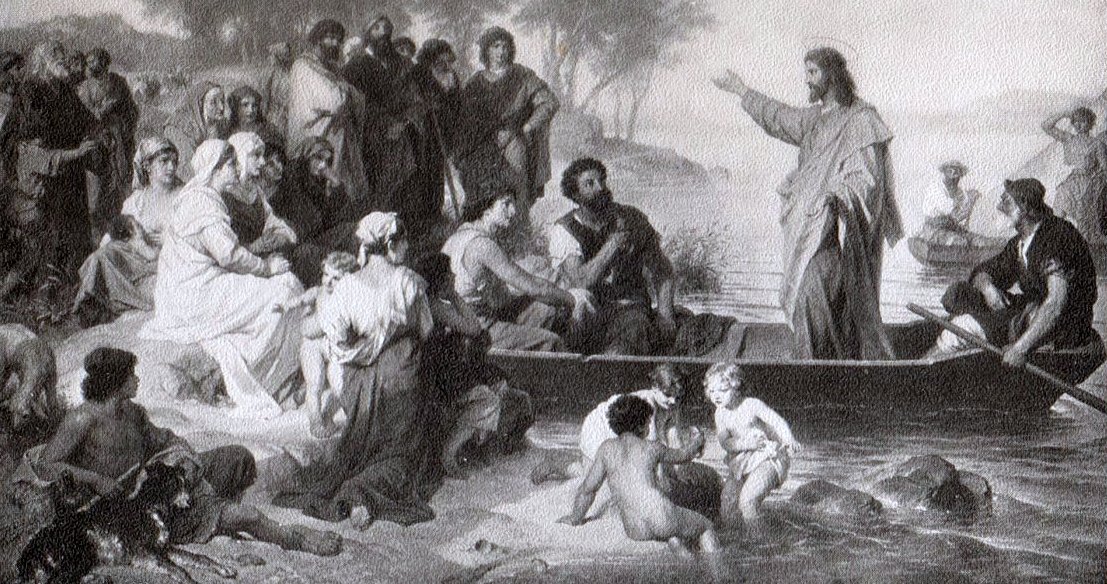 (1 Kgs 3:4-13; Ps 119:9-14; Mk 6:30-34)
(1 Kgs 3:4-13; Ps 119:9-14; Mk 6:30-34)
There are three things that stand out in today’s readings for Mass: a dream, leadership, and the reality of what it actually takes to be a good leader. In the first reading, King Solomon demonstrates the best traits of a godly leader. Upon recognizing the great responsibility he was given to lead his people as their king, the first thing Solomon did was to recognize how inadequate he was for the job. He went straight to the holiest place in the kingdom to offer a thousand sacrifices to God, and he probably prayed extensively for His guidance too. King Solomon realized he was only in that position by the grace of God and not by any effort or merit of his own.
God appeared to King Solomon in a dream, apparently in answer to his prayers. This alone is remarkable, that such an important person like King Solomon would pay any attention to his dream, but he did. We shouldn’t disregard our dreams either, as sheer nonsense. It is a rare event when God speaks to a person through a dream, but it does happen. God spoke to Saint Joseph, the three magi from the east, King Solomon, the boy Joseph, a Pharaoh in Egypt and many others in the bible. If we believe the bible, then we should trust our instincts about an unusual spiritual dream as well, especially if you can’t shake the dream and clearly remember the details for a long time afterward.
To trust God or to trust a spiritual dream can be a little scary. It takes a great deal of faith and courage to follow through on what God has conveyed to you in a dream, once you face it in the light of day. It is truly a test of faith.
The next thing to notice about the quality of King Solomon’s leadership is the intent of his heart. He wasn’t selfish or self-centered. This is hugely important in God’s eyes. King Solomon wanted what was right for the people, not what was right for him. He did not in any way, seek the admiration of everyone, or to acquire a lot of money, or ask for a longer life than everyone else. He simply wanted to be able to serve God and serve his people wisely. King Solomon’s focus as a servant leader, was entirely outward on God and on other people.
The capital sin of Pride is something we struggle with throughout our lives. Holiness takes root and grows in us, the more we are accustomed to taming this vice. King Solomon was a holy king, because he glorified God and not himself. Jesus also said that John the Baptist was the greatest of men born to women, for this reason as well. John the Baptist achieved this greatness in Christ’s eyes, the same way that King Solomon did in God’s eyes, by keeping the focus outward – loving God and loving others and forgetting themselves.
Do we do this in our jobs? Focus on customer service, the common good, the quality of our work and the best interest of other people? Or our own ambitions? In volunteer work or in ministry in the church, do we feel important in any way because of this position? Do we call attention to ourselves? Or call attention to Jesus Christ?
Speaking of Jesus … in today’s gospel Jesus shows us what the traits of a good leader are like. A good leader recognizes burnout and does something about it. They don’t just keep plugging along because they feel like the world will fall apart without them. A good leader takes care of themselves and takes care of those they are entrusted with too. This is true for mothers and fathers, as well as any other form of leadership; at work, in the community, or in the parish.
Jesus had his disciples withdraw from the crowds for an extended rest in today’s gospel. We can all do a better job too, if we are well rested. Lent is quickly approaching and this would be a really good time to plan on going on a retreat, pilgrimage, a vacation, or just a three-day weekend off to refresh our spirits.
I personally like to go to a hermitage once a year for a silent retreat. I empty my heart, my mind and my spirit and give it to Jesus in silence and in prayer. It is a de-cluttering of my spiritual life, a healing balm for my soul. The rest and the emptying of my mind and heart come first. But before the retreat is over, a space is created inside of me for God to fill, instead of all the “weeds” that grew there before. In this desert experience of solitude, silence, and prayer, the Holy Spirit speaks most profoundly. I always return to the reality of my life after the retreat – at peace, and with a much deeper union with the Lord.
I pray for this for you too. I pray you will not feel guilty taking a “time out” during Lent this year, to simplify your life, de-clutter your mind and heart, heal your spirit, be at peace, and have a deeper spiritual union with the Lord Jesus Christ. Jesus gave us his permission to do this in today’s gospel.
